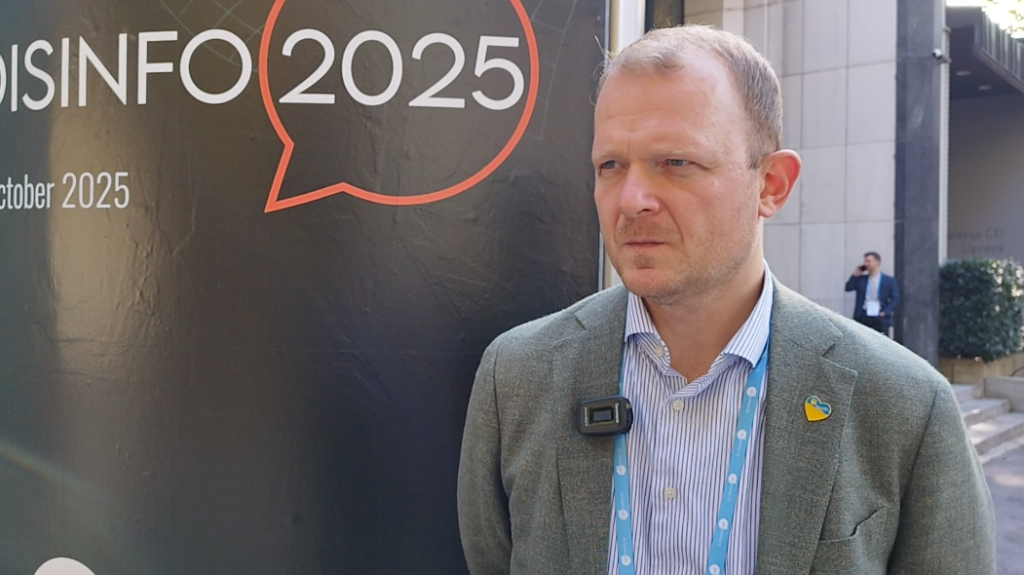
Photo: The Geopost
The war in Ukraine has shown that the information front is as important as the military one, says Jakub Kalenský, deputy director at the European Center of Excellence for Countering Hybrid Threats (Hybrid CoE) in Helsinki.
In an interview with The Geopost, Kalenský emphasizes that Artificial Intelligence (AI) is the main innovation in the way Russia spreads disinformation today.
Kalenský warns that bad actors like Russia are already using AI better and more often than democratic societies, which need to invest more resources and develop defense mechanisms to avoid being defeated in this new information battle.
Full interview:
The Geopost: What are the key new narratives used by Russian disinformation campaigns to shape public opinion in Europe?
Kalenský: I think when it comes to the narratives, Russia doesn’t really provide us with that much new. I think the narratives are mostly repeated. It’s about undermining the support for Ukraine. It’s about undermining the trust of the audience into their institutions. It’s about increasing the level of polarization in your country, making people more angry, more emotional. I think when it comes to the content it’s still very much the same. Something that we’ve seen ever since 2014 -2013 when Russia renewed its information aggression. So, I think the new things they are more in the delivery, in the way how Russians deliver the content.
The Geopost: How is AI currently being used to either support or disrupt disinformation campaigns?
Kalenský: That’s precisely one of the elements that provides the new in the Russian disinformation campaign. So, it’s not so much about the content, it’s more about how they are trying to deliver the content. AI can help you to more easily mass -produce content. So, whereas previously you would need several people typing several versions of the same narrative, now you can just type in one prompt and AI gives you hundreds of variations of the same message, which is super convenient when you are a disinformation aggressor and you try to run disinformation campaigns.
Another way where it really helps you is better translations. So, the disinformation campaigns of the past, sometimes they were uncovered by poor usage of the target language. Campaigns were uncovered because Russian trolls weren’t particularly skillful with French or with Finnish. Nowadays the new AI tools can already generate language that is almost indistinguishable from a native speaker.
So that’s another way where AI makes it much easier. And finally, AI makes it easier to micro -target content. A lot of the disinformation works because it’s targeted to a very carefully selected audience. Earlier, you would need an army of sociologists who would have proper sociological data. Nowadays, AI can actually do this much, much better, much, much faster. So, these are some of the ways how AI can help you with the delivery of the content.
The Geopost: How can we defend ourselves from the growing threat of AI-created disinformation?
Kalenský: The reason why the bad actors are better at this is that they spend more resources on this. Not just money, but also people. So, one thing we need to do, and we needed to do it even before AI became a factor, is to dramatically increase the amount of resources we are spending on this. We can’t let the situation be that Russia outnumbers us in the information space 1 ,000 to 1.
That’s a problem. And they don’t even need to be smart. They just beat us with the numbers. So, this is something where we need to step up. But also, AI can obviously help you not just to generate this information campaigns, but also to uncover them. And here there are some startups that are already doing quite interesting work. I would highlight maybe the Ukrainian “Let’s Data” because they have the experience from the frontline. They know what they’re doing. But again, the problem is the bad actors are using these tools better or more frequently with more resources than we are.
So we need to step up. That’s the main message.
/The Geopost

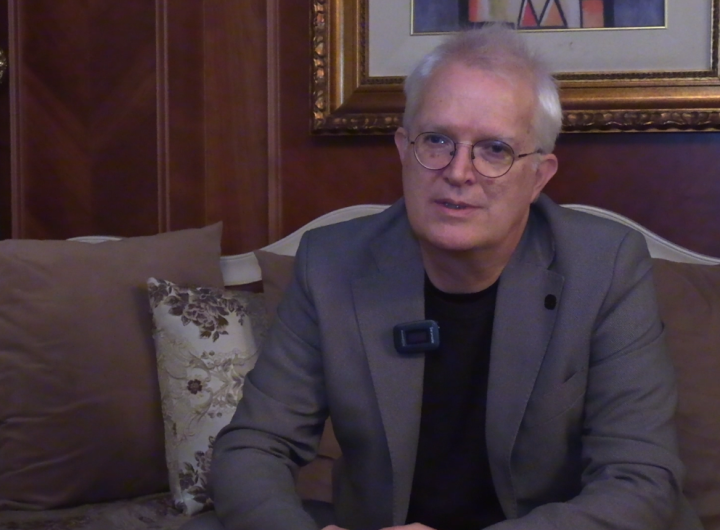 “Balkans, hostage to old historical narratives”, German historian: Kosovo an example of rapid transformation
“Balkans, hostage to old historical narratives”, German historian: Kosovo an example of rapid transformation  Danchenkova: Ukraine is fighting two fronts – Russian attacks and disinformation war
Danchenkova: Ukraine is fighting two fronts – Russian attacks and disinformation war 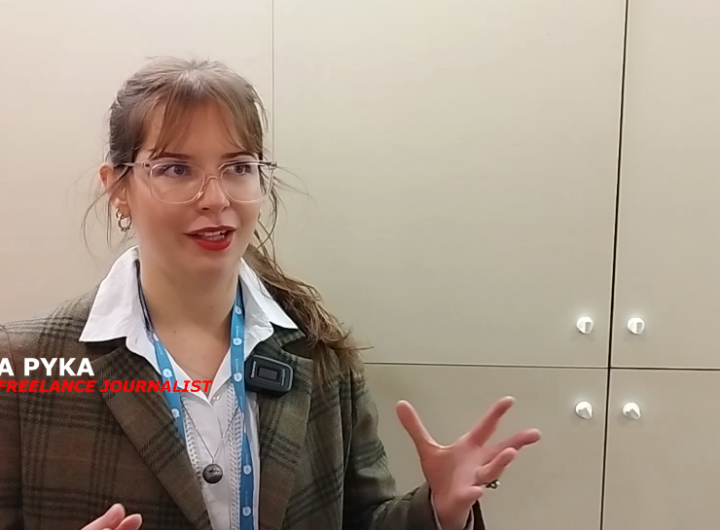 Polish Journalist: Russia Exploits Internal Divisions to Spread Disinformation
Polish Journalist: Russia Exploits Internal Divisions to Spread Disinformation 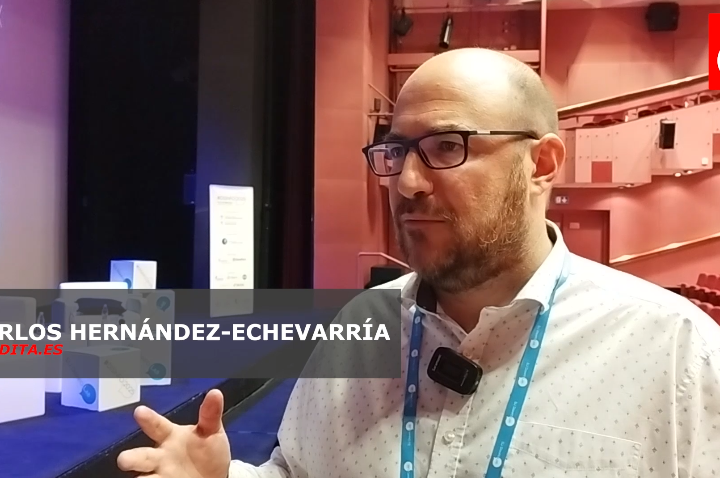 Russia is using disinformation to influence Western democracies
Russia is using disinformation to influence Western democracies  “Disinformation is becoming more sophisticated,” Alexandre Alaphilippe talks about global challenges and the role of AI
“Disinformation is becoming more sophisticated,” Alexandre Alaphilippe talks about global challenges and the role of AI 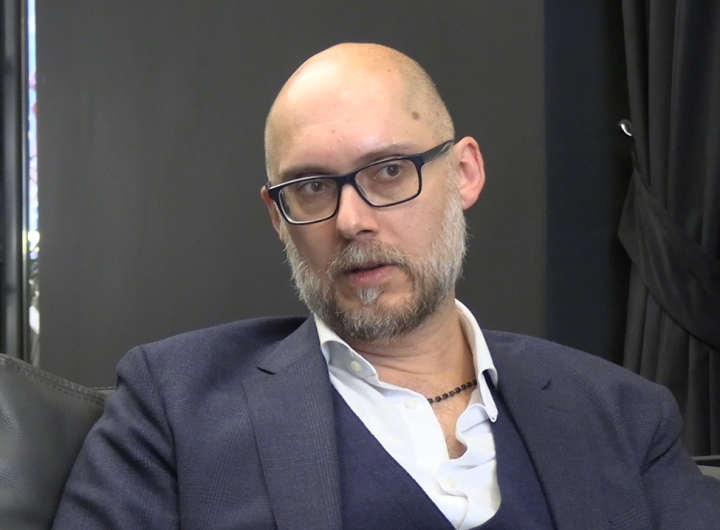 Paolo Palumbo: Russia is strengthening disinformation campaigns through artificial intelligence
Paolo Palumbo: Russia is strengthening disinformation campaigns through artificial intelligence